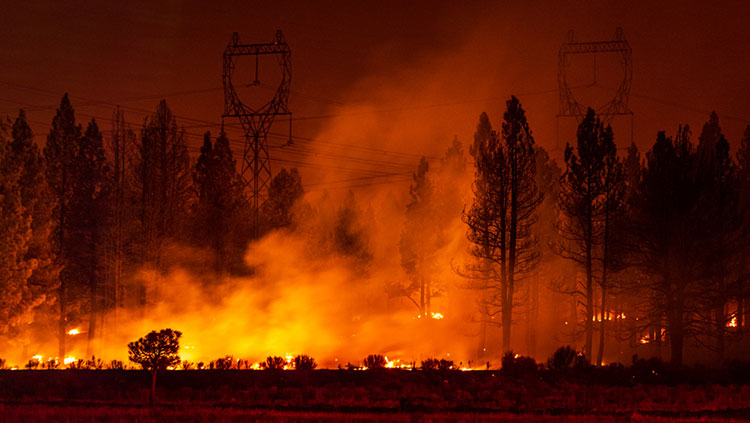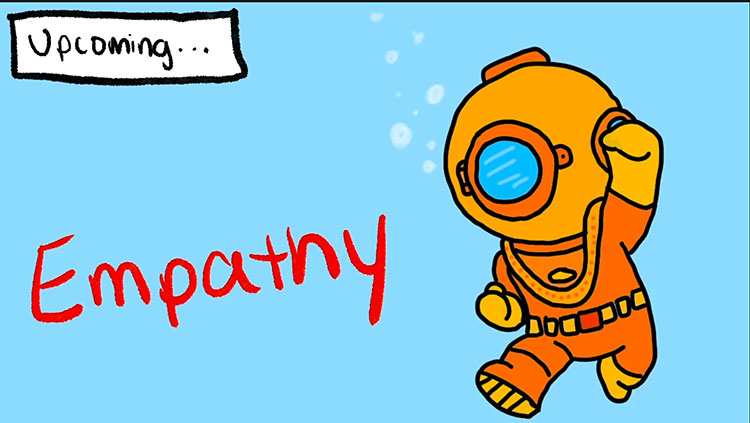Locked Inside: The Neuroscience of Social Isolation
- Published26 Oct 2021
- Source BrainFacts/SfN
The COVID-19 pandemic forced many of us to stay home. Office work and social gatherings shifted to remote spaces to mitigate the spread of the virus. That sparked increased interest in the effects of social isolation and feelings of loneliness on our brains and mental health.
This is a video from the 2021 Brain Awareness Video Contest.
Created by Lorena Ragonesi.
CONTENT PROVIDED BY
BrainFacts/SfN
Transcript
We were living our lives normally when, in March 2020, the world stopped. The dangers of COVID-19 transmission overrode consideration of social interactions. The COVID-19 pandemic obligated people all around the world to socially isolate themselves. So, you might be wondering, what is the neuroscience of social isolation? Can neuroscientists answer this question?
Even before the pandemic, millions of people lived in social isolation. This was already a hot topic in 2019 when the World Health Organization declared that loneliness was a major health concern. So, several studies were already being conducted to understand the impact of social isolation and loneliness on our brains.
So, let’s start with the difference between social isolation and loneliness. A human being can be socially isolated, but not feel lonely, while someone else can feel lonely in the middle of a crowd. Social isolation means not interacting with other people, while loneliness is the distressing feeling of not belonging. Social isolation, especially for a long time, can give rise to a sense of loneliness, but not necessarily.
Many studies have addressed the relationship between social isolation, loneliness, and health. While they don’t always agree with one another, and they can’t establish cause and effect relationships, they suggest that social isolation and the feeling of loneliness can impair brain function and cognition.
Humans are social animals just like most other mammals, so the lack of social interaction can adversely impact our health. Socially isolated people have an increased risk of cognitive decline such as impaired concentration, memory loss, dementia, and loss of social capacities. They also suffer adverse emotional consequences such as depression, stress, and anxiety. They also feel sick more often and have a shorter lifespan.
So, what might be happening inside the brains of isolated or lonely people? Three brain areas have shown the most significant changes in social isolation and loneliness studies: the prefrontal cortex, the hippocampus, and the amygdala.
The prefrontal cortex is an area that mediates executive function. It is the primary site for conscious decision-making, personality, and social behavior roles. Some studies show reduced prefrontal cortex brain volume in people who feel lonely. In research with rodents, which are also social animals, the ones isolated from other rodents showed dysregulated signaling in their prefrontal cortex. This means that neuronal communication to and from this critical brain region is compromised in animals that are socially isolated.
The hippocampus is known for its role in conscious memory, learning, and emotion processing. The hippocampus and many other brain regions use brain-derived neurotrophic factor, known as BDNF, to keep neurons healthy, thereby promoting learning and memory. A smaller than normal hippocampus with reduced amounts of BDNF were observed in socially isolated people and animals. Cortisol, a glucocorticoid produced in response to stressful stimuli, damages hippocampal neurons. Cortisol levels are elevated in socially isolated animals.
The amygdala plays a major role in determining our emotional state. Researchers have shown that there is a correlation between the extent of a person’s social circle and the volume of their amygdala. And recent studies show that lonely people have a smaller amygdala.
It will be years before we understand the actual impact of social isolation during the pandemic since it might come with a lot of other factors, such as fear of getting COVID-19, financial difficulties, and the occurrence of social isolation on developing brains. However, the importance of being aware of the effects of social isolation and loneliness extends beyond what happened during the pandemic. For example, there are still imprisoned people in solitary confinement, while single-person households are increasing worldwide. More research needs to be done, which can lead to discussions about the policies and actions we take, on one hand, to reduce communicable disease transmission, but on the other hand, to protect our brains to improve our quality of life.
Also In Diet & Lifestyle
Trending
Popular articles on BrainFacts.org

















